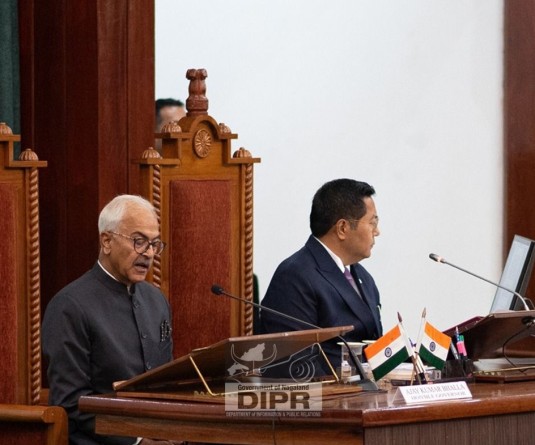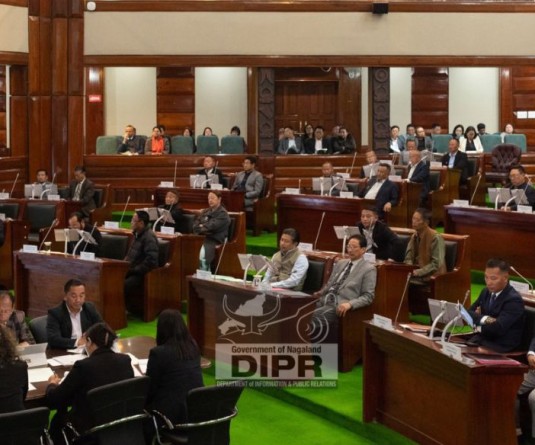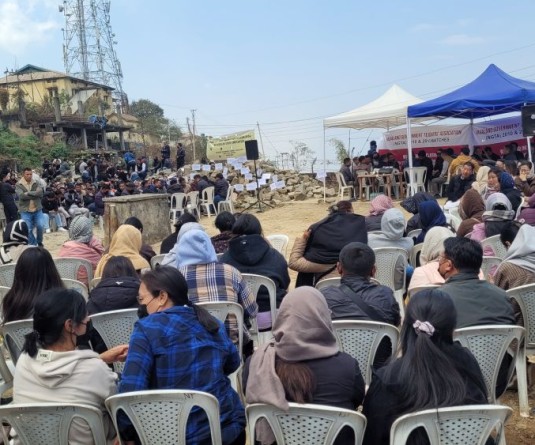Local villagers of Jengjal, West Garo Hills, Meghalaya, with the species under study by Nagaland University
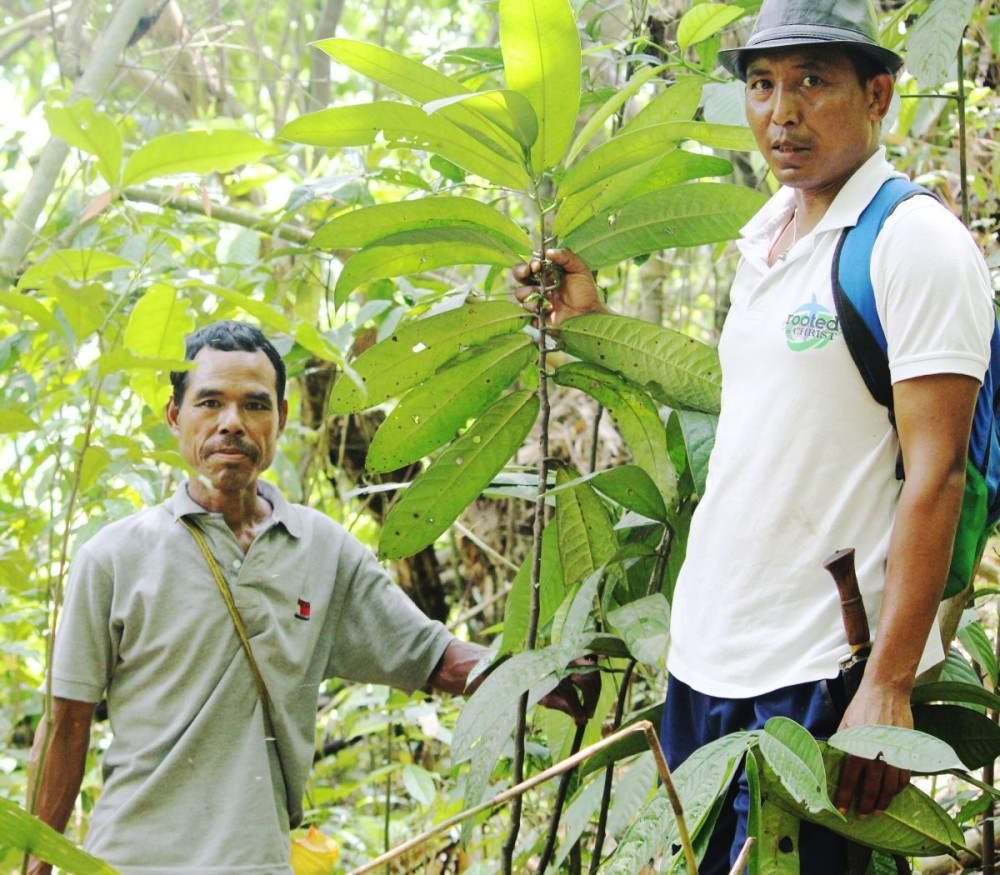
Researchers validate medicinal properties of endangered Meghalaya plant with anticancer potential
DIMAPUR, NOVEMBER 10 (MExN): Nagaland University researchers, in collaboration with Assam Down Town University, have conducted the first-ever scientific investigation on Goniothalamus simonsii Hook. f. Thoms., an endangered and endemic medicinal plant native to Meghalaya’s forests.
The study, published in Chemistry and Biodiversity in October 2025, provides the first scientific validation for the traditional use of the plant, long employed by local communities to treat gastrointestinal complications, throat irritation, typhoid fever, and malaria. Researchers found that G. simonsii contains bioactive phytochemicals with strong antioxidant, antimicrobial, and anticancer properties.
Using advanced analytical tools and computational modelling, the study revealed how natural compounds from the species interact with cancer-related proteins, offering potential leads for developing new, nature-based therapeutic drugs.
The research was led by Dr Mayur Mausoom Phukan, Assistant Professor, Department of Forestry, Nagaland University, along with research scholar Samson Rosly Sangma. Co-authors include Dr Dhrubajyoti Gogoi, Assistant Professor, Department of Biotechnology, Assam Down Town University; Dr Pranay Punj Pankaj, Associate Professor, Department of Zoology, Nagaland University; and research scholar Vahshi Chongloi from the Department of Forestry, Nagaland University.
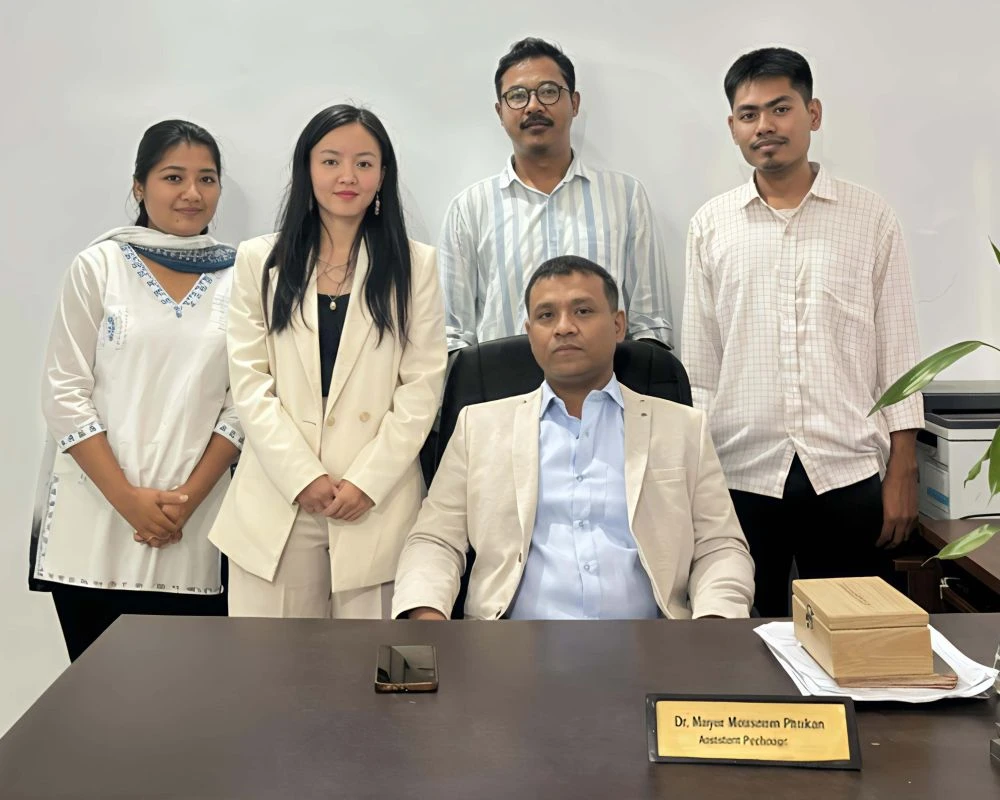
Speaking about the research, Vice Chancellor Prof. Jagadish K Patnaik said, “Nagaland University, in collaboration with Assam Down Town University, have undertaken the first comprehensive scientific study on Goniothalamus simonsii Hook. f. Thoms., an endangered and endemic medicinal plant native to the forests of Meghalaya. Through this study, our researchers are not only contributing to the conservation and understanding of a rare plant species but are also helping to bridge the gap between traditional knowledge and modern science.”
He added, “I commend the research team for their dedication and innovative approach, and I am confident that this work will open new pathways for sustainable utilization of our rich biodiversity. Nagaland University remains committed to promoting excellence in research and fostering collaborations that contribute to the scientific, cultural, and ecological advancement of the region.”
According to Dr Phukan, “This study bridges traditional knowledge with modern science at a crucial time when antibiotic resistance, chronic illnesses, and the side effects of synthetic drugs continue to strain healthcare systems. Our findings reaffirm that India’s rich biodiversity holds untapped potential for modern drug discovery. Goniothalamus simonsii not only offers pharmacological promise but also underscores the urgent need to conserve such endangered species.”
The study identified several bioactive compounds showing antioxidant, anti-inflammatory, antidiabetic, antimicrobial, and anticancer effects. Extracts from different parts of G. simonsii demonstrated strong antiproliferative activity against colon cancer cells in laboratory tests, highlighting its potential as a natural source of anticancer agents.
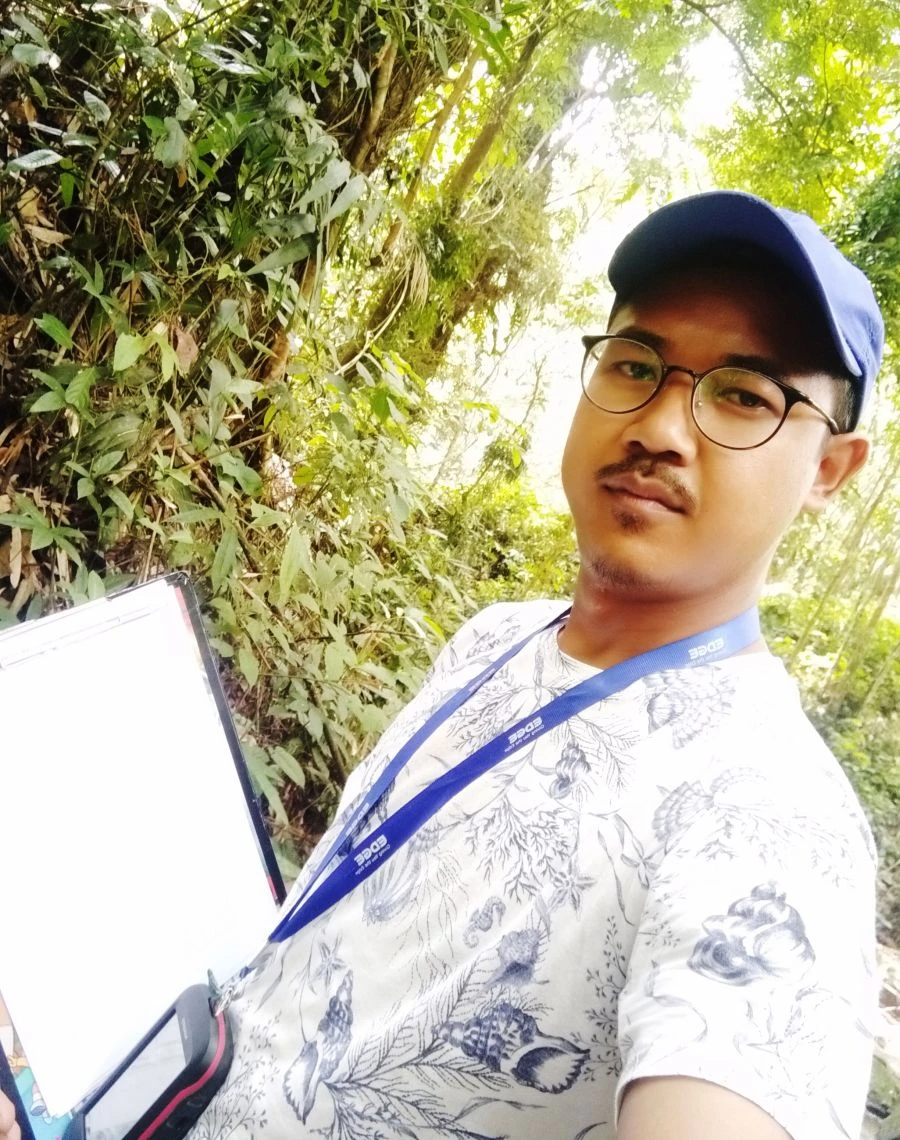
Research scholar Samson Rosly Sangma said, “What makes this research particularly significant is that Goniothalamus simonsii is an exceptionally rare species, with its population declining alarmingly and now confined to only a few natural habitats. This decline is largely attributed to the limited awareness of its medicinal importance among local communities. Listed as ‘Endangered’ by the International Union for Conservation of Nature (IUCN), this remarkable plant now faces an urgent need for focused conservation efforts. By generating robust scientific data, we hope that our work will encourage conservation and cultivation initiatives for this rare plant, ensuring its sustainable use and protection in the wild.”
The research highlights how traditional ethnomedicinal knowledge can be integrated with modern biotechnological and computational approaches to identify new possibilities for drug discovery. It also reflects India’s growing focus on leveraging indigenous biodiversity for affordable and accessible healthcare innovations.
The researchers plan to conduct in vivo and clinical studies to further validate their findings and explore the plant’s potential in phytopharmaceutical formulations.
According to the university, this landmark study positions Nagaland University at the forefront of efforts to scientifically validate India’s indigenous medicinal heritage and reinforces the Northeast’s role as a centre for biodiversity-based innovation and conservation.


